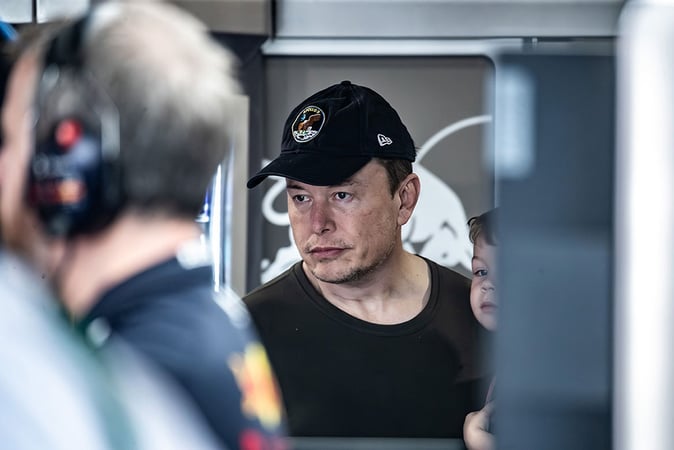The implications of a publicly traded Starlink are far-reaching, with the space industry poised for transformative changes.
Elon Musk, the visionary entrepreneur and founder of SpaceX, took to social media to deny reports suggesting that the rocket company was considering an Initial Public Offering (IPO) for its satellite internet business, Starlink, as early as 2024. Musk dismissed the rumors as “false” in response to a Bloomberg News report shared on the social media platform X.
Background of Starlink’s IPO Rumors
This statement contradicts previous indications from Musk, who had expressed his intention to list Starlink once its revenue growth and cash flow reached a stable and predictable state. Musk has consistently demonstrated a strategic approach to taking companies public, and Starlink appears to be no exception to this pattern.
SpaceX, with an estimated networth of $150 billion, has been a trailblazer in the private space industry. It achieved the historic feat of becoming the first private company to send humans into orbit, leaving competitors like Jeff Bezos’ Blue Origin scrambling to keep pace with innovations such as reusable rockets that significantly reduce launch costs.
The recent denial comes in light of speculation that SpaceX has been restructuring Starlink by moving its assets to a wholly-owned unit, fueling rumors of an impending IPO. However, Musk’s insistence on the inaccuracy of these claims suggests that the company may have different plans for the future of Starlink.
Justus Parmar, founder and CEO of Fortuna Investments, speculated on Musk’s strategy, stating, “I believe he (Musk) will take Starlink out, not next year, but maybe 2025, 2026. He’s waiting for a level of stability or predictability in revenue.” Parmar believes that when the Starlink IPO eventually happens, it will serve as an “extremely strong catalyst for everything space-related.”
The implications of a publicly traded Starlink are far-reaching, with the space industry poised for transformative changes. The injection of capital and increased investor interest could accelerate advancements in space technology, further propelling space exploration and satellite-based services.
Starlink’s Impressive Growth
Starlink has risen to become the world’s largest satellite operator, revolutionizing global internet connectivity. It recently signed a contract to provide free internet in Mexico until the end of 2026, further solidifying its market position.
Additionally, the Starlink satellite network has garnered attention for its ability to deliver high-speed internet anywhere worldwide by deploying satellites in low Earth orbit. With over 2 million subscribers globally and around 5,000 supporting satellites launched, Starlink has become a major player in the satellite internet market.
Moreover, SpaceX’s strategic moves extend beyond its technological achievements. The company has allegedly invested in a massive advertising campaign on X (formerly Twitter). This campaign aims to promote Starlink’s internet services, focusing specifically on the client base in Australia and Spain, showcasing Musk’s commitment to expanding the reach of Starlink on a global scale.
While the exact timeline for Starlink’s IPO, if ever, is unknown, Musk’s denial, combined with Starlink’s recent accomplishments and strategic moves, positions the company as a key player in the future of satellite internet services and the broader space industry.







